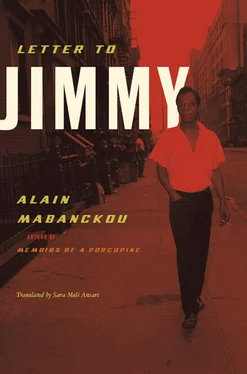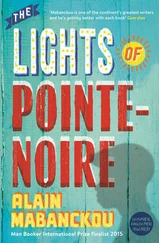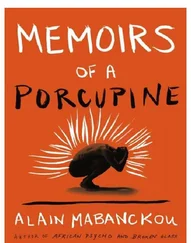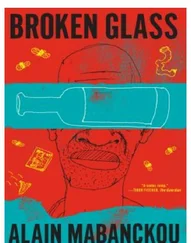After your stay at Le Hameau, you moved into a room at the large farm belonging to Jeanne Faure. Many people wondered how you managed to convince her to open the doors of her property to you. She was in fact very distrusting of people of color; it was a distrust that bordered on loathing. All of your biographers evoke the bitterness of this “pied-noir,” who had lived in Algeria during the colonial period. 125Uninformed and hurt, she had always believed that black people had helped chase the French out of Algeria, her homeland. You needed references from Simone Signoret, Yves Montand and the owner of the Colombe d’Or before you could sign the rental agreement. Later, when she would sell you a part of her home, she would deem it necessary to block the door leading to her rooms with an armoire, while at the same time alerting her neighbors to justify her behavior: “You never know what to expect from these ‘nee-gers.’” 126
Jeanne Faure is not the only one to harbor such feelings. The fear of a foreigner in a small village, who happens also to be a man of color, is not surprising. You receive by mail anonymous threats and insults. This does not discourage you; you have known nastier situations. All you have to do is talk with people. Your open spirit and your generosity break down the walls around you, little by little. You walk through the village, greet the passers-by, invite some of them for a drink in the local bar. You surprise many people with this simple approach.
In time, even your landlady becomes less suspicious of you. She invites you to dine with her, and is not offended that you return the favor. She enjoys listening to you talk about your America, your fight for the rights of your countrymen, and about what you are in the process of writing.
On the day of her brother’s burial, you are spotted in the funeral procession. In suffering, the depth of man’s spirit is discovered. From that moment on, the black man who smokes all day long charms Jeanne Faure, tapping away at his typewriter, and openly displays his good mood. Many people remark on your neighbor’s presence when François Mitterrand awards you with the Legion of Honor in 1986. And when Jeanne Faure finally decides to leave the village, she sells you her entire property. A change of heart? Certainly. But Miss Faure also had financial troubles.
•••
On your deathbed, you can do nothing more than imagine these famous figures. You are waging a war against your own shadow. Cancer gains ground. The treatments intensify and let you believe that hope and faith will take it away. Who would not believe it, after all, especially after the surgery on April 25, 1987, that allowed you to eat and work again? You devote yourself to writing a play, The Welcome Table.
The lull is short-lived. Your illness returns at a full gallop, and your loved ones draw near. Your partner Lucien Happersberger arrives from Switzerland. Your little brother, David, comes in from New York. Your personal secretary, Hassel, was also there, always faithful and devoted. Your neighbors surround you. They stop by, knock softly on your half-opened door, and David leads them to you. They come to see “Jimmy,” a man who chose Saint-Paul-de-Vence as his home, as his place of freedom. They want to hear your laughter. Alas, it has all but disappeared, replaced instead by a fixed grin that is either the beginning of a smile or the glimpse of an inner pain you struggle to conceal.
And who are the neighbors? I think mostly of the musician Bobby Short. He lives not far from there, in Mougins. With Bobby at the piano you used to sing little songs with him; David, with his deep voice, summoned his memories and the repertoire of old songs you had composed, some when you were still just a schoolboy.
David helps you move from your bed to your work-table. Sometimes, in a fit of pride, you refuse his help, which you see as defeat. Sick, yes, but incapable — no. You dread leaving your bed just to have your brother lead you back to it like a child. The persistent David has the gentleness to remind you that you carried him on your back countless times in his childhood. Why should he not take his turn in carrying you? 127
•••
This sudden affection feeds your distress; distress at leaving behind a shroud of sadness, at not finishing your last sentence. The anguish of telling yourself that you will join the other world, and will have to talk with David Baldwin, your father. You will have to tell him how he was wrong to believe for so long that he was nothing but black trash, and wrong for not knowing that he was beautiful. Hassel, who is very superstitious, admits privately to having seen your shadow on the wall. And so the fatal moment has arrived. Hassel is convinced of it. However, he clings to the idea that he has always seen you cheat death, has always heard you insist that you would leave the earth in a spectacular way, not weakened by illness. Hassel is not unaware that you see Death, and that you are now talking with her. No, you do not want to negotiate your departure date from the world. You have accepted the idea of your death.
Hassel has many reasons to believe that you will survive the 1st of December 1987. But there is the shadow on the wall that grips him. Can one survive an omen? It is possible. After all, he thinks to himself, you are an exceptional being. Had you not survived two heart attacks? These warnings did not prevent you from attending to your business, honoring your engagements around the world, even though you had to reduce your consumption of tobacco and alcohol.
You have to live your life. For these reasons, while you are attending a performance of your play The Amen Corner at London’s Tricycle Theater in February 1987, no one could have imagined that you had already reserved a hospital room in Nice for cancer surgery.
This time the doctors can do nothing more. The situation is desperate. Your entourage conceals from you their despair and the seriousness of your condition. But you are not so easily fooled. Your doctors assure you that you will make it through the end-of-year holidays without danger.
You begin to organize, therefore, a big event in Saint-Paul-de-Vence.
In these final hours when the world must seem very still, a woman appears before you, her face hidden by a dark veil. Your curiosity pushes you to remove the veil: it’s her, your mother. Now she wipes her thick glasses, foggy from tears. Yes, Emma Berdis Jones is somewhere in this room, despite the thousands of miles that separate you. You call her often, and, from Harlem, she listens to you with the despair of a mother who has always known that her child was fragile, and yet predestined to carry the world on his shoulders.
Your conversations remain unchanging. She offers you advice as she did long ago, when you were a child in Harlem: take care of yourself, don’t stay up too late, above all don’t smoke too much, drink even less, don’t give in to the taunts of those who attack you now that you are a public figure, or because your sexual orientation differs from theirs. For her, despite your international influence, you remain little Jimmy, who followed her around the house. .
•••
At present your world is reduced to the four walls of your bedroom. The biographer James Campbell paints a striking picture of this room that holds the secret of your final hours: a room submerged in soothing darkness, but whose wall paintings create an atmosphere of hallucination. 128In this confinement, as Campbell points out, there is the feeling that Simone Signoret and your other friends dead long ago have come to bring you news of the other world.
You still have the strength to give an interview in November 1987 to the writer and professor Quincy Troupe who will publish, two years after your death, a collection of essays dedicated to your memory. 129In the mix are the voices of Toni Morrison, Amiri Baraka, Maya Angelou, William Styron, Chinua Achebe and Mary McCarthy, among others.
Читать дальше












